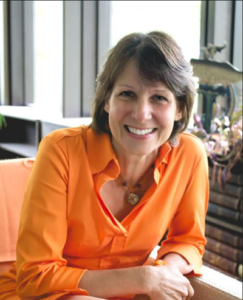 ‘Tis a season of lists: Zoom calls, errands, year-end reports, gifts. In the spirit of trying to let as few spinning plates drop as possible, I requested, and received, my father’s Christmas list. He’s a well-read, independent, widowed, and talkative 87-year old native New Yorker, and so the list is always thoughtful and intentional, a window into his thoughts and needs. While it included the regular requests for the edible and the practical (batches of homemade cookies, a pair of slippers), it was the last item that caught my attention: a pocket constitution. While current events would be the simple explanation, I knew better (in spite of his assessment, I have been paying attention), and it sent me digging into a few informative hours on the National Constitution Center website. It is worth recounting the famous 52 words of the Preamble here:
‘Tis a season of lists: Zoom calls, errands, year-end reports, gifts. In the spirit of trying to let as few spinning plates drop as possible, I requested, and received, my father’s Christmas list. He’s a well-read, independent, widowed, and talkative 87-year old native New Yorker, and so the list is always thoughtful and intentional, a window into his thoughts and needs. While it included the regular requests for the edible and the practical (batches of homemade cookies, a pair of slippers), it was the last item that caught my attention: a pocket constitution. While current events would be the simple explanation, I knew better (in spite of his assessment, I have been paying attention), and it sent me digging into a few informative hours on the National Constitution Center website. It is worth recounting the famous 52 words of the Preamble here:
We the People of the United States, in Order to form a more perfect Union, establish Justice, insure domestic Tranquility, provide for the common defence, promote the general Welfare, and secure the Blessings of Liberty to ourselves and our Posterity, do ordain and establish this Constitution for the United States of America.
And so I spent time with those first 15 words, reflecting on the concepts of inclusion and social contract, and wondering how would I apply them in my own world, as part of the restoration effort known as the Chesapeake Bay partnership. In that context, “We the People” describes perfectly our only path to success: all of us. There is no line between citizen or non-citizen, between scientist and non-scientist, between who is a partner and who is not; it is, simply, “We”. It occurred to me that so often in our lives we don’t practice science as the “We”, that we hold science to ourselves because of a number of reasons, some well-intentioned but perhaps not useful. Expertise has its role, certainly, but the joy of discovery and connection with the natural world should not be held exclusively, nor will that lead us to the end we desire. I am struck by the impact of a simple change in language in referring to data collection efforts by those outside the normal cast of characters as “democratization of science”. Such a term nicely describes the range of efforts described in this newsletter.
As for social contract, I would venture that the Chesapeake Bay Watershed Agreement is one, since it describes a more perfect union of human well-being and the natural world. I often refer to my professional life as one dedicated to the goal of helping humanity and aquatic ecosystems to bring out the best in one another; the point that humanity is “We” is not lost on me, as well as the fact that “We is the only way to fulfill the social contract. And so the alignment between participatory science efforts and the social contract is necessary, and my practical interpretation of that is the direct connection between engagement and use in tracking the progress of that social contract is necessary. In other words, how can we utilize the data in relevant and important ways in our restoration efforts. The programs described in the article do just that, by utilizing dolphin sighting data to corroborate acoustic data in understanding dolphin behavior, or including Citizens Monitoring Cooperative data to supplement monitoring data for a complete picture of restoration progress.
Best wishes for a merry season,
Denice
